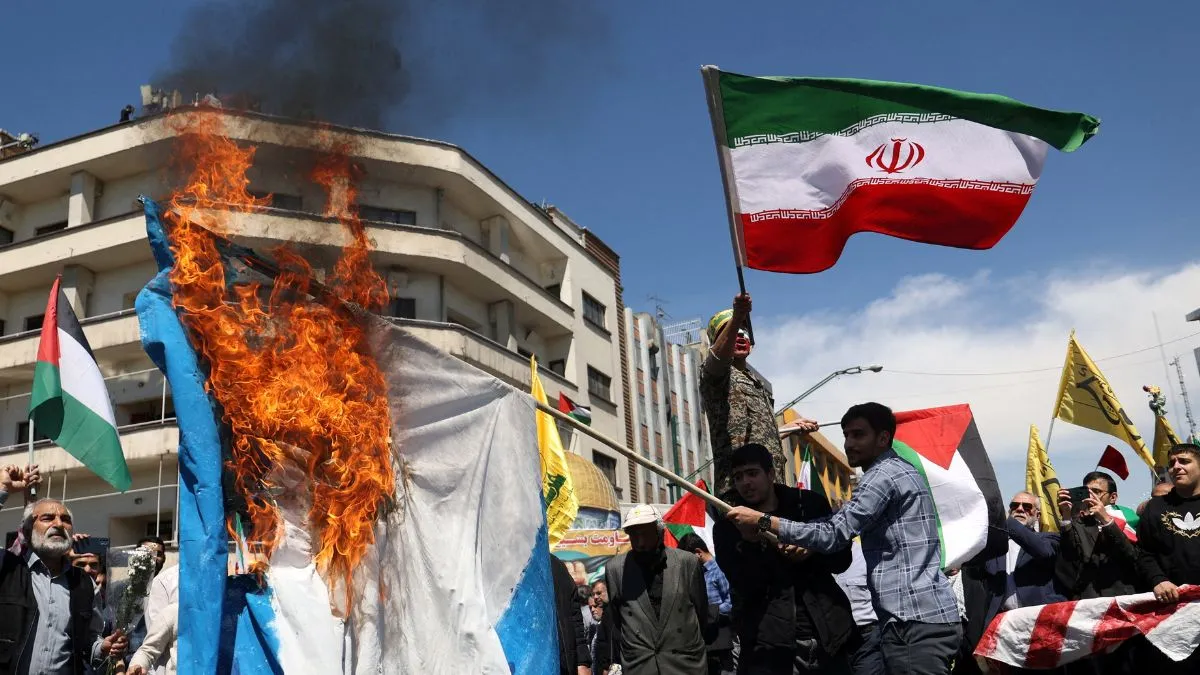- By Aashish Vashistha
- Wed, 02 Oct 2024 01:28 PM (IST)
- Source:JND
Iran on Tuesday fired nearly 200 missiles at Israel amid rising tensions in the Middle East. Iran’s attack on Tel Aviv came in the wake of Hezbollah chief Hassan Nasrallah’s death in an Israeli missile attack. Following the attack, Israeli Prime Minister Benjamin Netanyahu vowed to make Tehran pay and said it made a ‘big mistake’.
"Iran made a big mistake tonight and will pay for it," Netanyahu said hours after the attack, and warned: "Whoever attacks us, we attack them." Notably, the ties between the two nations were not always sour. These two nations found a common adversary in Iraq. Israel supported Iran during the Iran-Iraq war and was the main supplier of military equipment to Tehran during the war.
Very sad what's happening in the #MiddleEast & after tonight's #Iran strikes it looks like we're heading to #worldwar3 so all we can do is pray for diplomacy to prevail. Otherwise 2025 is gonna be a VERY scary year. As Gandhi said, "An eye for an eye makes the whole world blind" pic.twitter.com/8kx5TfDUwK
— Timothy Sykes (@timothysykes) October 1, 2024
Here’s A Look At Past Relationship Of Israel And Iran
Under the Shah regime, Iran perceived Iraq's leadership as a direct threat, while Israel faced a struggle against hostile Arab regimes. This led to a collaboration that saw both countries, with the support of the United States, join forces to bolster Kurdish insurgents against the Iraqi government.
The intelligence agencies of both Israel and Iran, Mossad and SAVAK, worked together to undermine Iraq's stability, laying the groundwork for an alliance that, at the time, seemed unthinkable.
During the Iran-Iraq War, Israel extended military support to Iran through the provision of military instructors. The collaboration yielded valuable Iranian intelligence that played a crucial role in Israel's Operation Opera—an airstrike against Iraq's Osirak nuclear reactor, a key element in Baghdad's pursuit of nuclear weapons.

Iran fired nearly 200 missiles at Israel on Tuesday. (Reuters Image)
A New York Times report from 1986 mentioned that Iran made a significant gesture of goodwill in 1978 by sending USD 260 million worth of oil to Israel. This cooperation extended to military advancements, particularly in missile development, until the upheaval of the Islamic Revolution in 1979, which brought an abrupt end to their collaboration under Ayatollah Khomeini’s regime
1979 Islamic Revolution
Before the Islamic revolution, Iran had been a close ally of the US, largely due to its strategic location and its oil resources. However, the revolution led to the overthrow of the Shah, Mohammad Reza Pahlavi, and the establishment of an Islamic Republic under Ayatollah Khomeini.
ALSO READ: Two Explosions Near Israeli Embassy In Copenhagen Cause Panic; Police Investigation Underway
The new Islamic Republic, under Khomeini, adopted an anti-Israel stance, viewing Israel as a "Zionist regime" and a key adversary.
-1727856253304.jpg)
Iranians are seen under a large flag of Iran during the 44th anniversary of the Islamic Revolution in Tehran. (Reuters Image)
From Allies to Adversaries: How Israel-Iran Relations Transformed
By the 1990s, the relationship between Israel and Iran had deteriorated significantly, marking a shift from their earlier cooperation. In the past, shared geopolitical concerns—such as Arab nationalism, Soviet influence, and the looming threat of Iraq—had united the two nations. However, the rise of Iran’s revolutionary government brought a new era, bringing anti-Israel ideology.
This ideological shift not only severed diplomatic ties between the two countries but also propelled Iran to support militant groups like Hezbollah and Hamas, deepening the conflict with Israel. Currently, the ties between two Middle Eastern countries are non-existent and both nations have been attacking each other following Israel's wide conflict against Hamas in Gaza, Hezbollah in Lebanon and Houthis in Yemen.

